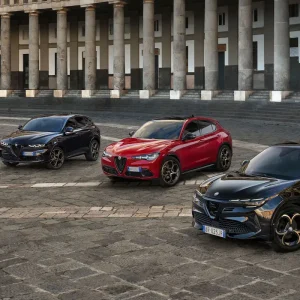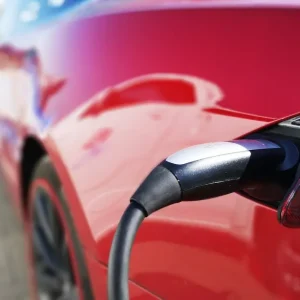Mandating salary sacrifice car provision for some organisations could be a way of democratising EV roll-out in the UK.
That’s according to James Court, CEO of EV advocacy group EVA England, who said that action was needed to widen the roll-out of the vehicles, which were currently tending to go to more affluent drivers.
Addressing a Westminster Energy, Environment and Transport Forum seminar on the next steps for EV deployment and charging infrastructure, Court explained that the current profile of EV drivers was skewed towards those earning more than the national average, and those with driveways.
Discussing potential ways to counter this, he said: “We could mandate that all medium and large companies have to offer salary sacrifice. I think the public sector should also be mandated throughout all public sector services.
“Secondly, introducing a social leasing programme, and this is a particularly interesting one, where you could benefit from having a direct agreement between government and manufacturer on offering a no-frills electric car, that then gets rented out, and actually we’ve seen that would be a budget positive for the government.
“And one that people in Scotland have experimented with is zero interest loans. This would help people trying to enter that [second-hand] market, by having a 0% interest loan which could be funded through tax benefits at the top end for banks.”
Also discussing the subject of EV incentives, National Grid fleet manager Lorna McAtear advocated for the current favourable 2% BIK company car tax rate for EVs to remain in place.
She told the seminar: “The fleets are the ones buying vehicles. The OEMs dropped us like a stone during Covid and went to the retail market, and now we’ve got that economic crisis they’re coming back to us, but they’re still not necessarily giving us the vehicles we need.
“We do need help, we need that BIK as low as we can so we can buy those vehicles and feed them into the second-hand market to create the confidence that’s needed.”
That issue of the second-hand EV market was addressed during the seminar by Ian Plummer, who explained that while recent steep drops in used EV prices had helped to make the vehicles more accessible by bringing them into line with ICE equivalents, it also brought the risk of a chilling effect for the new EV market.
He said: “This high level of depreciation, that’s accelerated used electric car demand, is very healthy in the short term but unsustainable really in the longer term, if we want to continue the cycle of positive new vehicle sales of electric.
“We have got a lot of new EVs coming back at us. 800,000 have been sold since 2020, the market needs to keep absorbing those.
“A lot of retailers and funders have lost confidence in the market – some have even banned their teams from buying EVs because they have been burned and don’t want to get into problems again – and that will have a follow-on impact on the new EV market if we aren’t very careful.”
Also commenting on the used market, EVA England’s Court argued that EVs possessed inherent advantages as second-hand buys when compared with ICE vehicles, which should come through more as the market progressed.
He said: “When buying a second-hand EV, it should be a much better experience than ICE, because the only thing that can really go wrong is the battery and you can test the battery. [With ICE] you don’t know if you’re going to be buying a dud.
“People buying second-hand EVs in the future should have a really clear picture of what they’re buying.”





